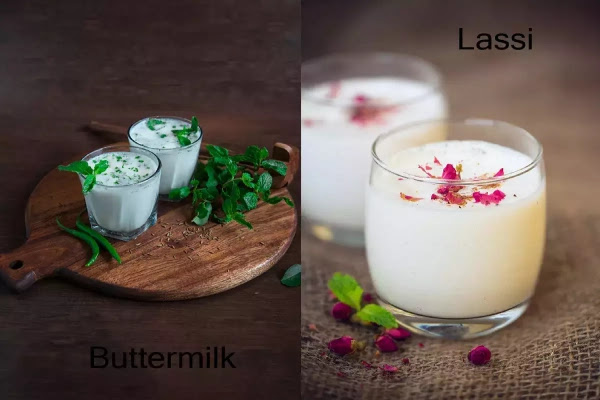Featured
- Get link
- X
- Other Apps
The Therapeutic Impact of Massage Therapy on Athletes

In the realm of sports and athletic performance, athletes
are constantly seeking ways to enhance their physical well-being and optimize
recovery. One often overlooked yet highly effective method is massage therapy.
Beyond its traditional role in relaxation and stress relief, massage therapy
plays a crucial role in supporting athletes throughout their training regimens
and competitive seasons. This thing explores the various ways in which massage
therapy can significantly benefit athletes, both in terms of physical recovery
and mental well-being.
Physiological Benefits of Massage Therapy for Athletes
1. Improved Circulation and Oxygenation
Massage therapy stimulates blood flow, enhancing circulation
throughout the body. This increased blood flow facilitates the efficient
transport of oxygen and nutrients to muscles, aiding in their repair and
recovery. For athletes engaged in intense training, this process becomes
crucial for preventing injuries and maintaining peak performance.
2. Reduction of Muscle Tension and Soreness
Intense physical activity often leads to muscle tightness
and soreness. Massage therapy targets muscle knots and tension, promoting
relaxation and alleviating discomfort. By releasing muscle tension, athletes
experience improved flexibility and range of motion, essential for optimal
athletic performance.
3. Accelerated Muscle Recovery
The manipulation of soft tissues during massage helps flush
out metabolic waste products such as lactic acid that accumulate during
exercise. This accelerates the recovery process, enabling athletes to bounce
back faster from strenuous workouts and competitions.
4. Prevention of Injuries
Regular massage therapy can play a significant role in
injury prevention. By addressing imbalances in muscle tone and identifying
areas of vulnerability, therapists can help athletes proactively manage and
correct issues before they escalate into more serious injuries.
Massage Therapy Techniques Tailored for Athletes
1. Sports Massage
Sports massage is a specialized form of massage therapy
designed to address the unique needs of athletes. It focuses on areas of the
body that are overused and stressed from repetitive and often aggressive
movements. Sports massage techniques may include deep tissue massage,
stretching, and joint mobilization, all aimed at enhancing an athlete's overall
performance.
2. Myofascial Release
Myofascial release is a technique that targets the fascia,
the connective tissue surrounding muscles. This approach helps release tension
in the fascia, promoting improved flexibility and reducing the risk of injury.
Athletes with restricted movement patterns can particularly benefit from
myofascial release.
3. Trigger Point Therapy
Trigger points are tight knots within muscle fibers that can
cause pain and restrict movement. Trigger point therapy involves applying
pressure to these specific points to release tension and alleviate discomfort.
This technique is valuable for athletes dealing with localized muscle pain or
tightness.
The Psychological Benefits of Massage Therapy for Athletes
1. Stress Reduction and Relaxation
While physical recovery is paramount, the mental and
emotional well-being of athletes is equally important. Massage therapy provides
a serene environment for athletes to relax, reducing stress levels and promoting
a sense of overall well-being. This mental respite is crucial for athletes
facing the pressures of intense training and competition.
2. Improved Sleep Quality
Adequate rest is fundamental for athletic recovery. Massage
therapy has been shown to improve sleep quality by promoting relaxation and
reducing anxiety. Athletes who struggle with sleep disturbances can find
significant relief through regular massage sessions.
3. Enhanced Mental Focus
The calming effect of massage extends beyond the treatment
session, contributing to improved mental focus. Athletes often experience
heightened concentration and a clearer mindset, leading to better
decision-making on and off the field.
Massage Therapy into an Athlete's Training Regimen
1. Pre-Event Massage
Pre-event massage focuses on preparing the athlete for
upcoming physical activity. It typically involves light, brisk movements to
stimulate circulation and warm up the muscles. This type of massage helps
enhance flexibility and mental readiness, setting the stage for optimal
performance.
2. Post-Event Massage
Post-event massage is geared toward aiding recovery after
intense physical exertion. It addresses muscle fatigue, reduces soreness, and
promotes the elimination of waste products. Athletes who receive post-event
massages often report a quicker recovery time between competitions.
3. Maintenance Massages
In addition to pre- and post-event massages, athletes
benefit from regular maintenance massages throughout their training cycles.
These sessions help prevent chronic issues, address emerging concerns, and
contribute to the overall well-being of the athlete.
Conclusion
The integration of massage therapy into an athlete's routine offers a holistic approach to physical and mental well-being. The physiological benefits, coupled with the psychological advantages, make massage therapy a valuable tool for athletes striving for peak performance. As the sports community continues to recognize the importance of a comprehensive approach to athlete care, massage therapy stands out as a non-invasive, drug-free, and highly effective means of supporting the unique needs of athletes across various disciplines. Whether for injury prevention, enhanced recovery, or overall performance optimization, the therapeutic impact of massage therapy on athletes is undeniable.
- Get link
- X
- Other Apps
Popular Posts
Refreshing Cold Soup Steps To Chill On Hot Summer Days
- Get link
- X
- Other Apps

